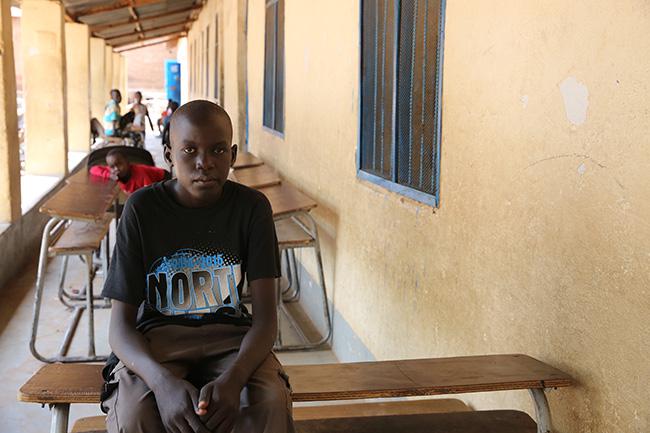
Children who experienced violent clashes in Juba, South Sudan earlier this month are anxious and afraid. Many require psychological support to help reduce the risk of further distress and disruptions to their well-being.
In the battle-scarred capital of South Sudan, children who should be playing are instead worrying about the future and asking when it will be safe to go home again.
Two weeks after heavy fighting erupted in Juba, thousands remain displaced. And though a ceasefire has held since 11 July, many are afraid the conflict could resume.
“They’re not themselves,” says Lisette Suarez, a psychologist at Confident Children out of Conflict, a UNICEF partner that provides support and shelter to vulnerable children. “It’s hard to get them to concentrate. They keep asking if the fighting is going to start again.”
The organization is normally home to nearly 50 children, but another 15 arrived during the worst of the fighting this month. The children were seeking safety after losing track of their parents when their families fled their homes.
“We tried to keep everyone calm. We prayed, we played some cartoons for them. We tried to make life here as normal as possible, but the children would ask if the soldiers were coming after them,” says Tinate Zebedayo, the group’s acting director.
“Our first priority is to find and reunite children who are separated from their families because of the fighting,” says Anthony Nolan, a UNICEF child protection specialist. “But we also have to provide long-term psychological support so that children can recover from these traumatic events. Children should be playing football, not dodging bullets and mortars.”
At the nearby St. Joseph’s school, dozens of orphans and their carers continue to sleep in empty classrooms, too frightened to return. Some of the most intense battles took place near their children’s centre, and children and staff walked for hours, some barefoot, to reach the church complex where the school sits.
UNICEF volunteers have turned classrooms into play areas with toys and games for children. The younger children race about, tossing balls and bumping into one another. The older children are more thoughtful. Noor Angelo, 13, says he would rather stay at the school than return home. “That place is dangerous now,” he says. “Here is better.”
UNICEF and partners have registered more than 13,000 children who have been separated from their families since the conflict began in South Sudan. 4,137 have been reunited with their families. Family tracing efforts are underway for those who are still alone or being cared for by neighbours or relatives.
Source: UNICEF
 FR
FR EN
EN AR
AR








